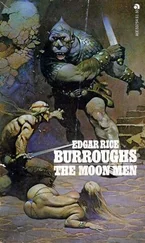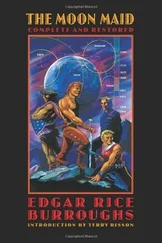Edgar Burroughs - The Red Hawk
Здесь есть возможность читать онлайн «Edgar Burroughs - The Red Hawk» весь текст электронной книги совершенно бесплатно (целиком полную версию без сокращений). В некоторых случаях можно слушать аудио, скачать через торрент в формате fb2 и присутствует краткое содержание. Жанр: Боевая фантастика, на английском языке. Описание произведения, (предисловие) а так же отзывы посетителей доступны на портале библиотеки ЛибКат.
- Название:The Red Hawk
- Автор:
- Жанр:
- Год:неизвестен
- ISBN:нет данных
- Рейтинг книги:3 / 5. Голосов: 1
-
Избранное:Добавить в избранное
- Отзывы:
-
Ваша оценка:
- 60
- 1
- 2
- 3
- 4
- 5
The Red Hawk: краткое содержание, описание и аннотация
Предлагаем к чтению аннотацию, описание, краткое содержание или предисловие (зависит от того, что написал сам автор книги «The Red Hawk»). Если вы не нашли необходимую информацию о книге — напишите в комментариях, мы постараемся отыскать её.
The Red Hawk — читать онлайн бесплатно полную книгу (весь текст) целиком
Ниже представлен текст книги, разбитый по страницам. Система сохранения места последней прочитанной страницы, позволяет с удобством читать онлайн бесплатно книгу «The Red Hawk», без необходимости каждый раз заново искать на чём Вы остановились. Поставьте закладку, и сможете в любой момент перейти на страницу, на которой закончили чтение.
Интервал:
Закладка:
I dismounted and approached them, my hand held out toward them as is the custom of my people in greeting friends, with whom we always clasp hands after an absence, or when meeting friendly strangers for the first time. They did not seem to understand my intentions and drew back, fitting arrows to their bows.
I did not know what to do. They were so small that to have attacked them would have seemed to me like putting children to the sword, and, too, I craved their friendship, for I believed that they might prove of inestimable value to me in discovering the shortest route back to my people, that was at the same time most free of Kalkar camps.
I dropped my hand and smiled, at a loss as to how best to reassure them. The smile must have done it, for immediately the old man’s face broke into a grin.
“You are not a Kalkar,” he said; “they never smile at us.” He lowered his weapon, his example being followed by the others. “Tie your horse to a tree. We will give you food.” He turned toward the tents and called to the women to come out and prepare food.
I dropped my reins to the ground, which is all the tying that Red Lightning requires, and advanced toward the little men, and when I had thrown aside my Kalkar coat and bonnet they crowded around me with questions and comment.
“No, he is not a Kalkar,” said one. “His cloak and bonnet are Kalkar, but not his other garments.”
“I was captured by the Kalkars,” I explained, “and to escape I covered myself with this cloak which I had taken from a Kalkar that I killed.”
A stream of women and children now issued from the tents, whose capacity must have been taxed beyond their limit. The children were like toys, so diminutive were they, and, like their fathers and mothers, quite naked, nor was there among them all the sign of an ornament or decoration of any nature.
They crowded around me, filled with good natured curiosity, and I could see that they were a joyous, kindly little people; but even as I stood there encircled by them I could scarcely bring myself to believe in their existence, rather thinking that I was the victim of a capricious dream, for never had I seen or heard of such a race of tiny humans.
As I had this closer and better opportunity to study them I saw that they were not of the same race as the slaves, or In-juns; but were of a lighter shade of brown, with different shaped heads and slanting eyes. They were a handsome little people and there was about the children that which was at once laughable and appealing, so that one could not help but love them and laugh with them.
The women busied themselves making fire and bringing meat-a leg of venison and four for bread, with fresh fruits such as apricots, strawberries and oranges. They chattered and laughed all the time, casting quick glances at me and then giggling behind their hands.
The children and the dogs were always under foot, but no one appeared to mind them and no one spoke a cross word, and often I saw the men snatch up a child and caress it. They seemed a very happy people-quite unlike any other people who have lived long in a Kalkar country. I mentioned this fact to the chief and asked him how they could be so happy under the cruel domination of the Kalkars.
“We do not live under their rule,” he replied. “We are a free people. When they attempted to harass us, we made war upon them.”
“You made war upon the Kalkars?” I demanded incredulously.
“Upon those who came into our hills,” he replied. “We never leave the hills. We know every rock and tree and trail and cave, and being a very little people and accustomed to living always in the hills we can move rapidly from place to place.
“Long ago the Kalkars used to send warriors to kill us, but they could never find us, though first from one side and then from another our arrows fell among them, killing many. We were all about them, but they could not see us. Now they leave us alone. The hills are ours from the great Kalkar camp to the sea and up the sea for many marches. The hills furnish us with all that we require and we are happy.”
“What do you call yourselves?” I asked. “From where do you come?”
“We are Nipons,” he replied. “I am Saku, chief of this district. We have always been here in these hills. The first Nipon, our ancestor, was a most honorable giant who lived upon an island far, far out in the middle of the sea. His name was Mik-do. He lives there now. When we die we go there to live with him. That is all.”
“The Kalkars no longer bother you?” I asked.
“Since the time of my father’s father they have not come to fight with us,” replied Saku. “We have no enemies other than Raban, the giant, who lives on the other side of the hills. He comes sometimes to hunt us with his dogs and his slaves. Those whom he kills or captures, he eats.
“He is a very terrible creature, is Raban. He rides a great horse and covers himself with iron so that our arrows and our spears do not harm him. He is three times as tall as we.”
I assumed that, after the manner of the ignorant, he was referring to an imaginary personification of some greatly feared manifestation of natural forces-storm, fire or earthquake, perhaps-probably fire, since his reference to the devouring of his people by this giant suggested fire, and, so dismissed the subject from my mind, along with Mik-do and the fabulous island in the sea.
How filled is the mind of the ignorant native with baseless beliefs and superstitions. He reminded me of our own slaves who told of the iron horses drawing tents of iron and of men flying through the air.
As I ate I questioned Saku concerning the trails leading back in the direction of my people. He told me that the trail upon which he was camped led to the summit of the hills, joining with another that led straight down into a great valley which he thought would lead me to my destination, but of that he was not sure, having only such knowledge of the extent of the valley as one might glean from viewing it from the summit of his loftiest hills.
Against this trail, however, he warned me explicitly, saying that I might use it in comparative safety only to the summit, for upon the other side it led straight down past the great, stone tent of Raban the giant.
“The safer way,” he said, “is to follow the trail that winds along the summit of the hills, back toward the camp of the Kalkars-a great trail that was built in the time of Mik-do-and from which you can ride down into the valley along any one of many trails. Always you will be in danger of Raban until you have gone a day’s march beyond his tent, for he rides far in search of prey; but at least you will be in less danger than were you to ride down the canon in which he lives.”
But Raban, the imaginary giant, did not worry me much and although I thanked Saku for his warnings, and let him believe that I would follow his advice, I was secretly determined to take the shortest route to the valley beyond the hills.
Having finished my meal I thanked my hosts and was preparing to depart when I saw the women and children pulling down the tents to an accompaniment of much laughter and squealing while several of the men started up the canon, voicing strange cries. I looked at Saku questioningly.
“We are moving up the canon for deer,” he explained, “and will go with you part of the way to the summit. There are many trees across the trail that would hinder you, and these we will move or show you a way around.”
“Must you carry all this camp equipment?” I asked him, seeing the women struggling with the comparatively heavy hide tents, which they were rolling and tying into bundles, while others gathered the tent poles and bound them together.
“We will put them on our horses,” he explained, pointing up the canon.
Читать дальшеИнтервал:
Закладка:
Похожие книги на «The Red Hawk»
Представляем Вашему вниманию похожие книги на «The Red Hawk» списком для выбора. Мы отобрали схожую по названию и смыслу литературу в надежде предоставить читателям больше вариантов отыскать новые, интересные, ещё непрочитанные произведения.
Обсуждение, отзывы о книге «The Red Hawk» и просто собственные мнения читателей. Оставьте ваши комментарии, напишите, что Вы думаете о произведении, его смысле или главных героях. Укажите что конкретно понравилось, а что нет, и почему Вы так считаете.








